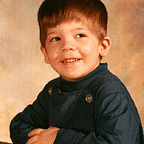Sicko, Sex, Empowering, and Other Words used to Judge My Profession
Let’s play a guessing game called, “What is my profession?”
I will give you three hints. And, you can make a guess after each hint.
Ready?
Hint #1. My profession causes some people to call me a “sicko.”
Any guesses yet?
Hint #2. My profession requires me to be talking about sex — a lot.
I imagine your guesses are getting pretty interesting right now.
Hint #3. Without my profession, there would be significantly higher rates of sexually transmitted diseases, self-shaming, guilt, unwanted pregnancies, sexual assaults, family & domestic violence, poverty, suicide, and murder.
What. Is. My. Profession?
Give up?
My profession is — A professor of psychology, who conducts human sexuality research and has been teaching courses in human sexuality for more than 20 years.
Did you guess correctly?
Looking back, a lot has changed with me, my students, and teaching during my decades-long tenure of being a professor of psychology.
But I also recognize, two things, which are paradoxical to one another, have remained the same throughout this time:
1. The name calling — from people who have never stepped inside a science-based human sexuality course.
and
2. The life-changing positive impact learning about human sexuality has on my students.
With my human-sexuality-scientist cap on, I could back my two recognitions up, by sharing with you, the historical, political, and emotional barriers, systematically put in place, to allow only a few of us (less than 6% of the World’s population), the privilege of objectively learning about human sexuality.
And, I could share with you the extensive research literature, empirically demonstrating the psychological, sociological, and economic benefits of being exposed to a comprehensive and science-based human sexuality education.
But I am not going to share either of these things with you.
Instead, to back my recognitions of what has remained the same over the past 20 years of teaching human sexuality, I am going to share with you a parable about a girl on a mountain with her bicycle.
Cycling down one of Colorado’s tallest mountains, Pike’s Peak, and its 14,115 feet of elevation, is both daunting and awe-inspiring.
Imagine yourself doing it.
Now put yourself back atop Pike’s Peak with a person named Avery by your side. Avery is eager to cycle the 156 steep turns that compose one of the highest roads in the world. But before descending, Avery turns to you, and says, “This is my first time ever riding a bicycle.”
You exclaim, “You’re about to ride down the side of a mountain without knowing how to ride a bicycle!?”
To which Avery replies, “My parents become mute every time the subject of bicycling is broached, my religion says it’s only for making more bicycles, and my school just says, ‘don’t ride.’ But I’ve learned about bicycling from my friends, who are endlessly talking about it, and I’ve watched hundreds of hours of videos on the Internet about it — so I think I’m pretty prepared.”
“Oh, by the way, do I need a helmet; and where do I put my feet?”
Much like cycling down a mountain without ever riding a bike before, today’s sexual landscape is daunting, awe-inspiring, and filled with people completely unprepared for it. Harassment, sexting, unwanted pregnancies, safer sex, same-sex marriages, online dating, sexual consent, HPV, virtual love, gender non-binary, and Netflix & chill — are parts of this complex sexual landscape, yet few people are properly educated to negotiate it.
Despite being judged from those who do not know otherwise, being a human sexuality professor has allowed me to facilitate people’s natural abilities for fully exploring their own diverse and ever-changing sexual landscapes.
However, this facilitation does not require being a professor, it only requires real words, precise language, and uninhibited discourse.
I hope my sharing about my profession serves as an inspiration for you to facilitate sexual expression, identity, and health; and work against sexual suppression, shame, and abuse.
References
Jaramillo, N., Buhi, E. R., Elder, J. P., & Corliss, H. L. (2017). Associations between sex education and contraceptive use among heterosexually active, adolescent males in the United States. Journal of Adolescent Health, 60, 534–540.
Landry, M., Turner, M., Vyas, A., & Wood, S. (2017). Social media and sexual behavior among adolescents: Is there a link?. JMIR Public Health and Surveillance, 3, e28.
Lindberg, L. D., & Maddow-Zimet, I. J. (2012). Consequences of sex education on teen and young adult sexual behaviors and outcomes. Journal of Adolescent Health, 51, 332–338.
Lucas, D. R., & Fox, J. (2018). Exploring Sexual Landscapes. https://nobaproject.com/blog/2018-01-31-exploring-sexual-landscapes
National Conference of State Legislatures (December 21, 2016). State Policies on Sex Education in Schools, http://www.ncsl.org/research/health/state-policies-on-sex-education-in-schools.aspx
Nikkelen, S.W.C., van Oosten, J.M.F., & van den Borne, M.M.J.J. (2019). Sexuality education in the digital era: Intrinsic and extrinsic predictors of online sexual information seeking among youth. Journal of Sex Research, 1–11.
Santelli, J. S., Grilo, S. A., Choo, T.H., Diaz, G., Walsh, K., Wall, M., Hirsch, J.S., Wilson, P.A., Gilbert, L., Khan, S., & Mellins, C.A. (2018). Does sex education before college protect students from sexual assault in college? PLOS ONE, 13, 1–18.
…
Don Lucas is a Professor of Psychology and head of the Psychology Department at Northwest Vista College in San Antonio Texas. He loves psychology, teaching, and research.
If you like this story, then check out Don’s videos on his YouTube channel, 5MIweekly: https://www.youtube.com/channel/UCQFQ0vPPNPS-LYhlbKOzpFw/featured, follow him on Instagram @5MIweekly, and like him on Facebook: http://fb.me/5MIWeekly
